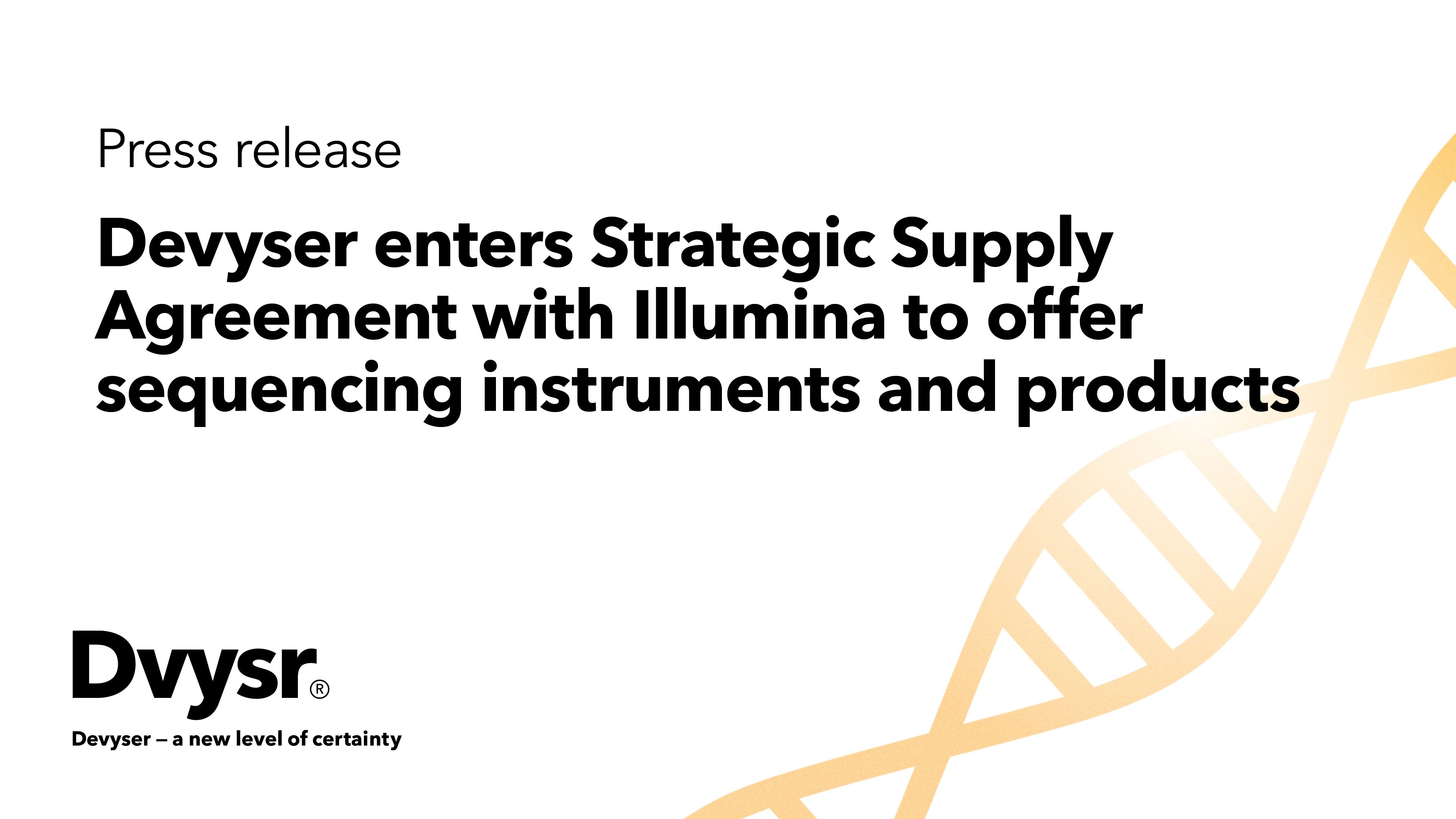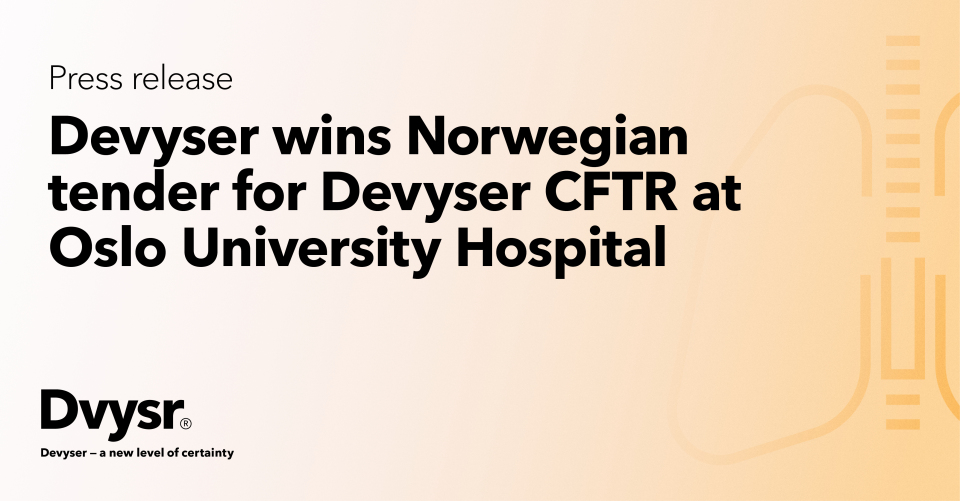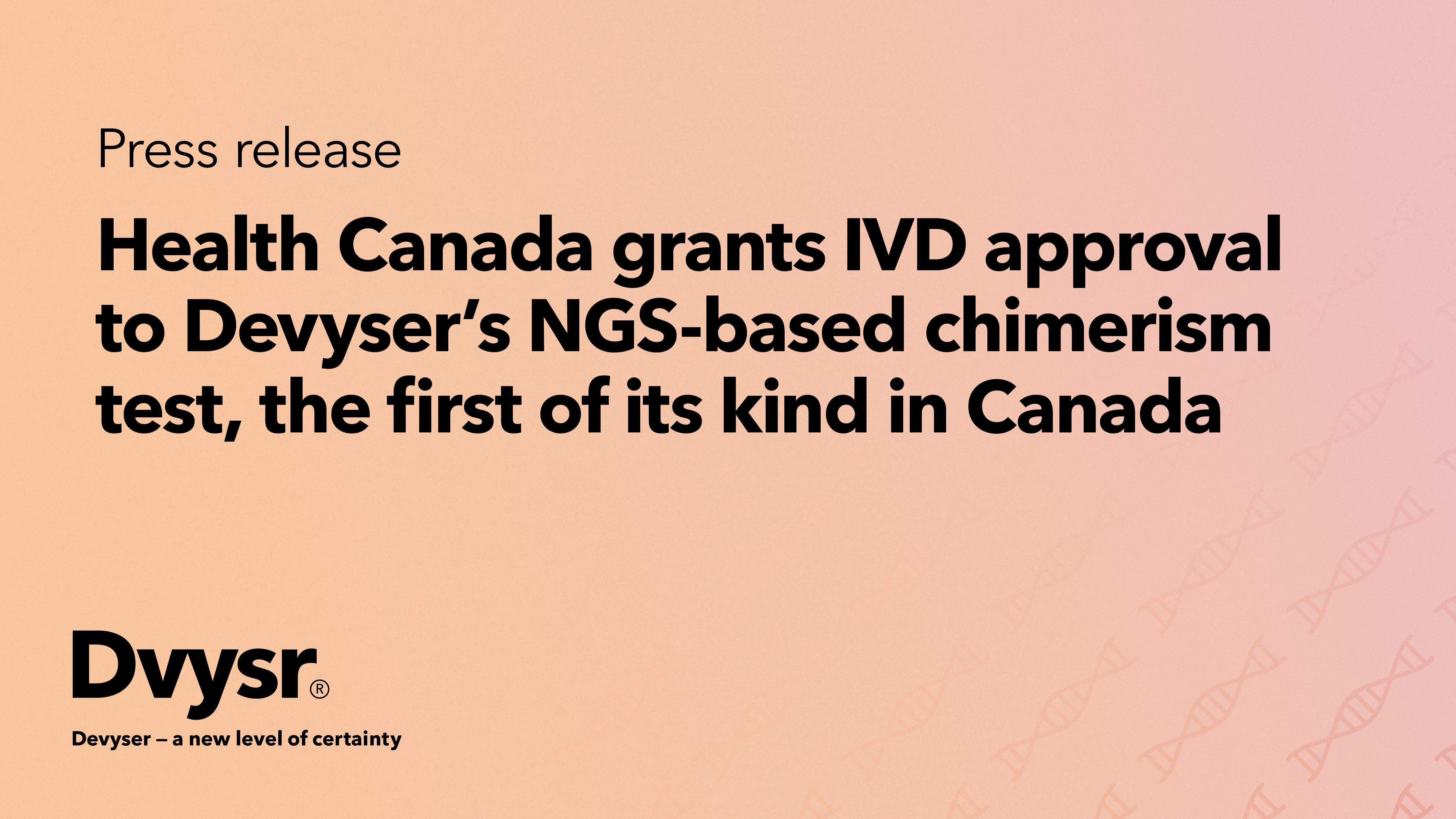Devyser enters Strategic Supply Agreement with Illumina to offer sequencing instruments and products
Devyser today announced that it entered a strategic agreement with Illumina, a global leader in DNA...
.png)
Thalassemias | June 18, 2024
In 2022, we had the pleasure of hosting a webinar by Dr. Thessalia Papasavva, Associate Scientist at The Cyprus Institute of Neurology and Genetics (CING). In this webinar, Dr. Papasavva explored her labs’ transition to NGS-based (next-generation sequencing) testing and how this method can transform thalassemia testing. Whilst two years have passed, the need for fast, streamlined, and effective thalassemia testing remains vital.
For those who did not join the webinar back in 2022, we have summarised the key messages in this blogpost.
You can access the full webinar recording on-demand here.
Thalassemia in Cyprus:
Thalassemia, a prevalent hereditary blood disorder, disrupts hemoglobin production and causes severe anemia. Cyprus exhibits a high prevalence of thalassemia, with 12% of its population being beta-thalassemia carriers and 19% alpha-thalassemia carriers. The national prevention program, including premarital screening and reproductive counseling, has dramatically reduced thalassemia-affected births since its inception in 1983.
Traditional testing methods at CING:
Historically, the Molecular Genetics Thalassemia Department (MGT) at CING employed a combination of hematological analysis and genetic testing, utilizing six methods to detect mutations in the HBA and HBB genes. This approach, although comprehensive, was labor-intensive and complex. The process could take between 2-13 days to complete testing. This range of methods and long process leads to the following:
A decision tree for the traditional clinical workflow used to diagnose thalassemia can be seen below.
%20(5).png)
Transition to NGS:
NGS was explored as a solution to streamline thalassemia testing and overcome the challenges of the traditional methods used at MGT. NGS offers a simplified workflow, faster turnaround times, and extensive coverage of alpha and beta gene clusters for thalassemia testing. By consolidating the genetic testing process into a one-tube assay, NGS reduces error risks and overall costs while providing a complete genetic patient profile.
Implementation journey:
Initial strategy: The initial integration of NGS involved combining multiplex GAP PCR and NGS to filter out common variants.
Adoption of NGS: The NGS method, which can handle a high sample rate, was adopted as the first-line test, replacing GAP PCR.
Efficiency gains: Despite being labor-intensive initially, the NGS workflow proved efficient and cost-effective in the long term.
The NGS workflow provided an end-to-end procedure. The laboratory process spans 3-4 days of hands-on time, as opposed to the previous methods, which took up to 13 days. The accompanying tailored analysis software, Amplicon Suite, integrates with Laboratory Information Management Systems (LIMS) and ensures efficient result reporting and data management.
Advantages of NGS over traditional methods:
Comprehensive mutation detection: NGS can detect common and rare mutations, providing a more detailed genetic landscape.
Reduced complexity: The streamlined process reduces the workflow complexity associated with traditional multi-step methods.
Cost-effectiveness: NGS has proven more cost-effective over time due to reduced reagent use and lower labor costs.
Higher throughput: NGS allows for the simultaneous analysis of multiple samples, increasing lab efficiency.
Future directions:
The future of thalassemia testing lies in further advancements in NGS technology. Continuous improvements in sequencing accuracy, reduced costs, and enhanced bioinformatics tools will make NGS even more accessible and reliable.
Conclusion:
NGS has profoundly impacted thalassemia testing at CING, offering accurate, efficient, and comprehensive genetic analysis. This advancement simplifies the diagnostic process, enhances efficiency, and improves patient outcomes. The insights from Cyprus highlight the transformative potential of NGS in genetic testing, setting a new benchmark for improving laboratory workflows.
Click here to further explore how an NGS solution could streamline your thalassemia testing.

Devyser today announced that it entered a strategic agreement with Illumina, a global leader in DNA...
Read More

Devyser is proud to announce that the company has been awarded a tender by Oslo University Hospital...
Read More

Devyser, a leading provider of advanced genetic testing solutions, has been awarded a new tender in...
Read More

Devyser is proud to announce that One Lambda Devyser Chimerism and Advyser Chimerism have been...
Read More